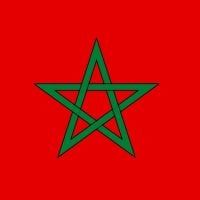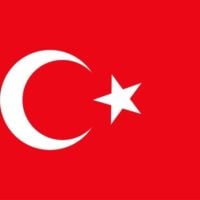Deadline: 31-May-23
Do you run an SME in the food sector in Rwanda? If yes, then apply for the SME Development Fund in Rwanda.
The Circular Food Systems for Rwanda SME Fund provides an incredible opportunity to access the support, education, technical assistance and networking needed to create and implement successful and sustainable circular business models.
Principles
- Produce food in ways that regenerate nature
- Food production is often resource-intensive, wasteful, and polluting.
- However, agriculture has great potential to regenerate natural systems, keeping soil healthy and water clean while storing carbon and providing a home for a range of biodiversity both above and below ground.
- Reduce food loss and waste
- They need to reduce the vast amounts of food they currently lose at all stages, from production to consumption. If current levels of food loss and waste were a country, it would be the third largest greenhouse gas emitter in the world. By minimizing that loss and waste they can not only feed more people, but make huge progress toward mitigating climate change.
- Use commonly wasted resources productively
- Less than 2% of the valuable nutrients in food by-products and waste are currently recycled.
- By using these nutrients as fertilizers, in animal feed, or for feedstock in products like textiles and plastics, they can drive innovation, create new business opportunities and lessen damage to the environment
How will this program foster the growth of circular food practices in Rwanda?
- Circular Food Systems for Rwanda aims to put these three principles into practice. A development fund will provide technical assistance to small and medium-sized enterprises (SMEs) in implementing a circular business model or improving upon their current practices. At the same time, the program aims to create an enabling policy environment to catalyze system transformation.
Why Apply?
- Accelerate Growth
- Enhance Competitiveness
- Mitigate Risk
- Working towards a circular economy is not only good for the planet – it is also an essential strategy to build a successful business by minimizing waste and resources and incorporating innovation.
What kind of support is available?
- The Fund will focus on delivering Technical Assistance that is currently unavailable or difficult to access in Rwanda to selected SMEs. The Fund will also be committed to exploring circular business opportunities that would not otherwise receive investment.
- After filling in the application form, companies will be contacted for follow-up and assessment. Shortlisted SMEs will be matched with a Technical Assistance provider. As well as implementing Technical Assistance, the SME and the Technical Assistance provider will develop and present a proposal for future partners and/or funders.
- In the long term, the Fund aims to build a thriving ecosystem of investment-ready circular agri-food SMEs.
- Examples of the type of Technical Assistance that could be available include, but are not limited to, the following:
- Guidance on how to incorporate circularity through a specific need, demand, or market opportunity. For example: creating value chains from agricultural residues, reducing production costs or increasing yields
- One to one coaching or mentoring on how to incorporate circularity within a business model and implement circular practices over a period of approximately three months
- Training on circularity practices such as composting, vermiculture, agri-protein, organic fertilizers, agri-processing or product diversification.
- Coaching on developing proposals on circular innovation or transition applications and links to potential funders
- Unpacking and understanding the economics of circular food applications and their impacts and outcomes
Eligibility Criteria
- The SME Fund is open to SMEs operating in the food sector in Rwanda that are driving progress towards a circular economy.
- SMEs can be involved in any stage of the food system, including agricultural inputs, production, storage, processing, packaging or distribution of food. They may work in any agricultural value chain, but priority is being placed on horticulture, grains, aquaculture and livestock value chains, as well as circular innovations that can be applied across the food system.
- Core Eligibility:
- Demonstrated agri-food focus
- Demonstrated understanding of business fit in value chain
- Proposing new or expanded circularity integration
- 2+ years of operation
- Local registration in good standing with relevant authorities in Rwanda
- Technology-enabled
- Partner/investor relationship referrals
For more information, visit Circular Food Systems for Rwanda.









































